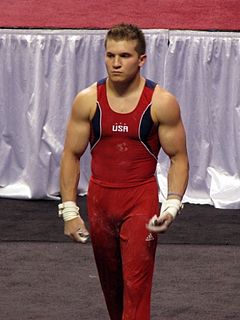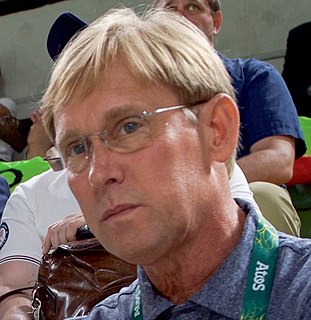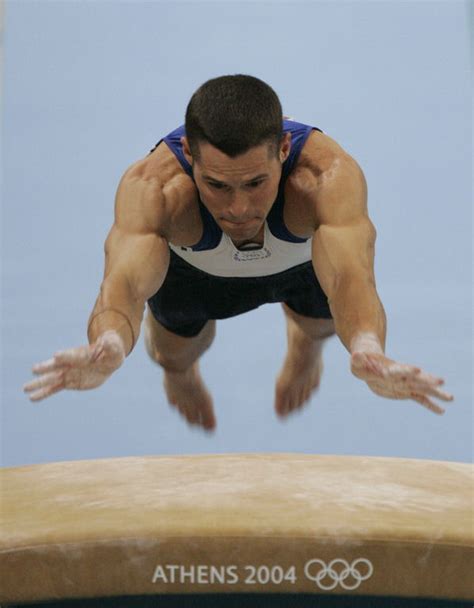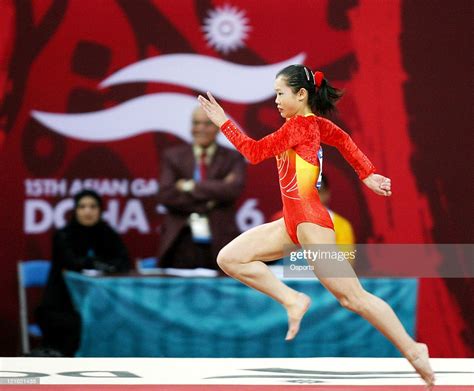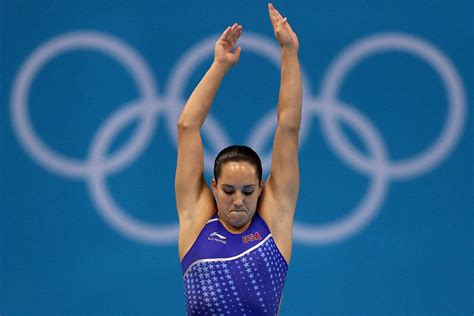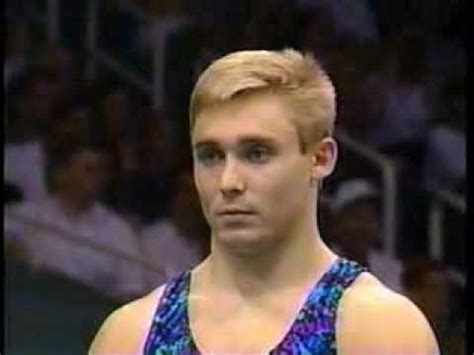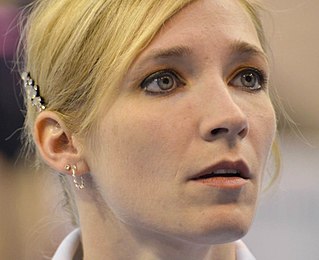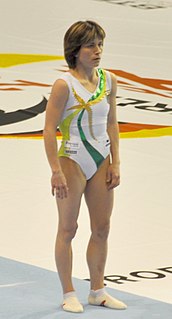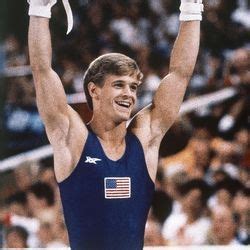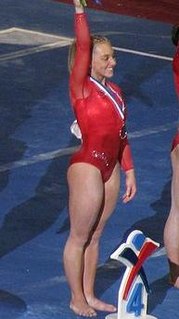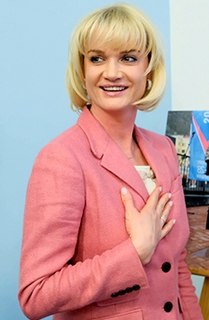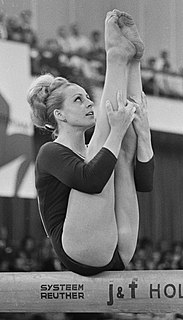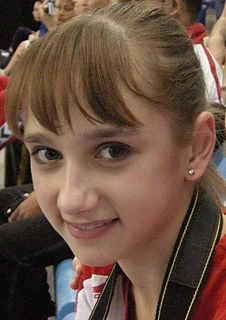Top 32 Quotes & Sayings by Jonathan Horton
Explore popular quotes and sayings by an American gymnast Jonathan Horton.
Last updated on April 19, 2025.
I'm no perfect gymnast. I want to go out and eat junk food, or I maybe don't sleep as much as I should, or some days I'll leave the gym and think, "Maybe I should have worked a little harder. Maybe I'm not as tired as I need to be." Every day you push a little harder, eat a little better, maybe go to bed a little earlier.
It's hard to put what it means into words. It's just a dream I had when I was a little kid. It's not every day [you] get to make your lifelong dream come true. The point of doing things in life is you pursue a goal, and you go after it, you reach it and you pick another one. But they're hard to attain.
There's mornings where I have to clear my mind and think, "OK, why am I doing this? Why am I putting myself through this kind of training every day?" I can literally see myself standing on top of a medal podium winning a gold medal next to my teammates, something I've never accomplished. It reminds me: That's why I do what I do. That's why I love it. Let's get in the gym and have a good workout.
It’s called the pursuit of perfection. The pursuit is the idea that you’ll never be perfect in gymnastics but you can continue to pursue it as long as you’re doing it. I don’t think it’s possible to be perfect in gymnastics. It’s just one of those sports that you’re always trying to improve and pursue that perfection.
When I moved down to Houston, I had people who were willing to support me with sponsorships and different endorsement deals. That's really how I stayed afloat. It isn't ridiculous money where you can live however you want - I still have to be disciplined - but I've been very blessed with having people to support me.
I want to stay involved in gymnastics forever, but the Olympics really opened up doors in terms of motivational speaking. I'd like do some type of broadcasting or commentating for gymnastics events on TV, or even give my insights as a gymnast into other sports; I'm kind of a sports junkie in general.
I changed my diet drastically. In college, I was a typical college guy who ate junk food all the time. When you're in college, your metabolism is through the roof. I felt like my body started to change when I was 22 or 23, so I started meeting with a nutritionist and it completely changed everything.
My first workout starts at 9:00 a.m. every morning. I'm in the gym from 9:00 a.m. to 11:00 a.m. We do strength conditioning, stretching, pretty intense workouts in the morning. We go back in the gym at 1:00 p.m. and train until 5:00 p.m. It's all routines, repetition, doing the same skills over and over again, trying to polish and perfect everything. I head home, eat dinner, spend some time with my wife and start over the next day. I train about six days per week.
Another big difference about not being in college: In college, you're on the team, you're competing for the NCAA - luckily I had a full scholarship and I was taken care of - then all of a sudden you're a pro and you've got to take care of yourself. I'm gonna keep doing the same thing, keep training, and hopefully everything works out.
It was definitely a big change in my life going from the college scene to really kind of being on my own. I got married and moved to Houston and started a whole new journey. It was scary in a way, but what's great for me is just focusing on gymnastics and my wife. I'm really able to put 100% into what my goals are.
The Olympics is a huge deal, and there's such an adrenaline rush, but I am one of those people that finds every little victory in life extremely satisfying - the day I got married, the day I moved into my house, the first car I bought, becoming an uncle. The little victories in life really keep you going, and none of those are any less special than the Olympic team.
I’m a true believer in the mental side of gymnastics – the 95% mental and 5% physical. It’s totally true. As you get to an older age, at 25 years old, I’ve pretty much learned everything that I need to learn in gymnastics. Now it’s, can I mentally push through the daily grind? Can I push through the small injuries and the aches and pains?
I tell my coach all the time "Hey, listen, coach. You know the hardest person on me isn't you, right? It's me." I'm the hardest person on myself, my biggest critic, always pushing. But there are days when I have to tell myself, "Relax, breathe, you're too stressed out." When it's no longer fun, when it's no longer something you can tolerate, that's when you have to take a break.
I am completely honest and truthful when I say I don’t want a gold for myself. I want a gold for the team. You go up there and do it as a collective group and it’s so much more satisfying, I mean you look around and you see the faces and just wow, this was a team effort and we did this together. It’s incredible and that’s my dream. I wanna win a gold medal and see the flag go up, hear the national anthem and just know that I did it with my brothers standing next to me.
